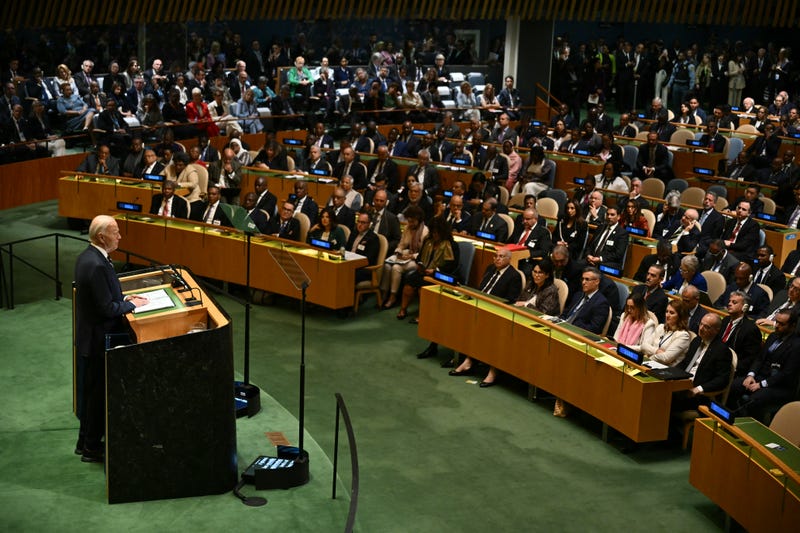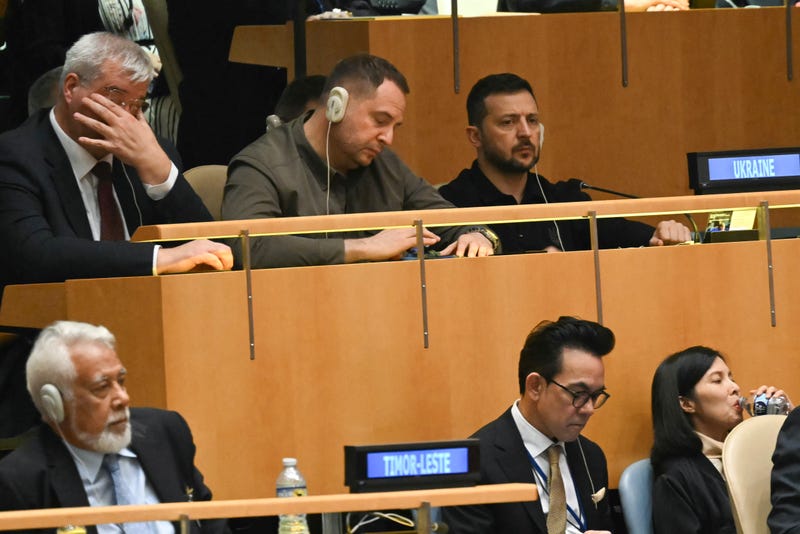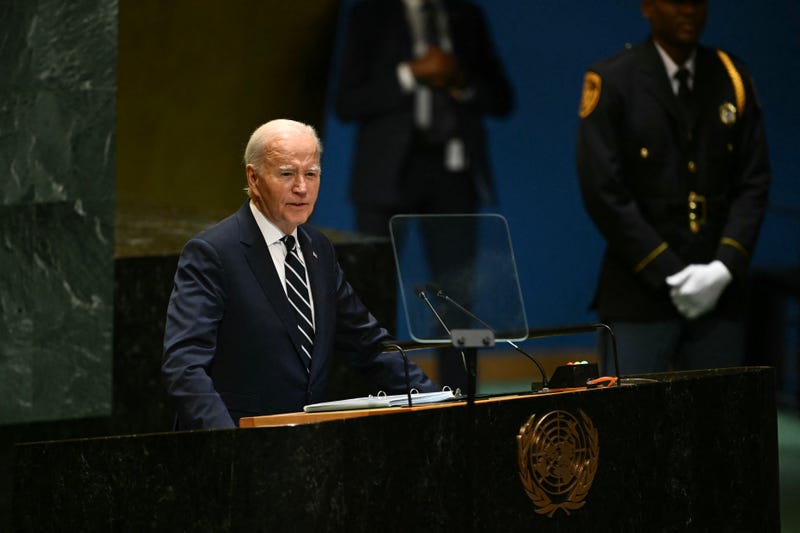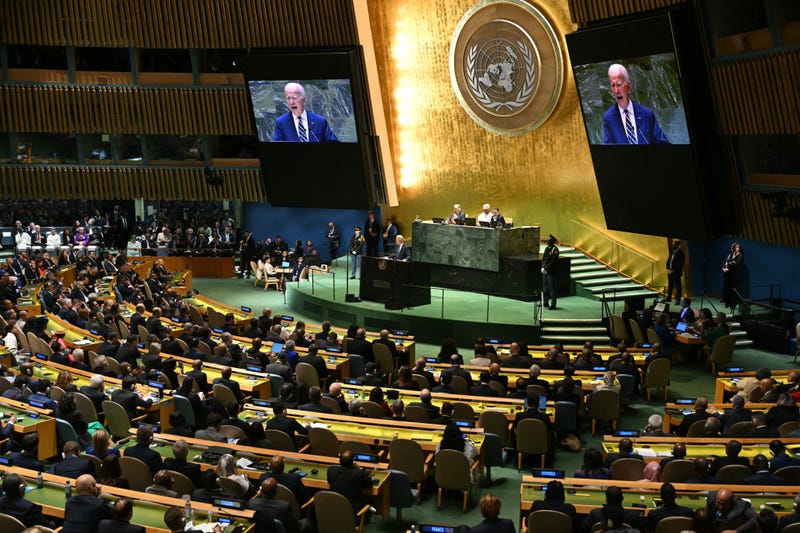
NEW YORK (1010 WINS/AP) — President Joe Biden declared the U.S. must not retreat from the world, as he delivered his final address to the U.N. General Assembly on Tuesday as wars rage in Ukraine and the Mideast.
Biden used his wide-ranging address to speak to a need to end the Middle East conflict and the 17-month-old civil war in Sudan and to highlight U.S. and Western allies' support for Kyiv since Russia invaded Ukraine in February 2022.
Biden insisted that despite global conflicts, he remains hopeful for the future. “I’ve seen a remarkable sweep of history," he said. “I know many look at the world today and see difficulties and react with despair but I do not.”
“We are stronger than we think” when the world acts together, he added.

Biden came to office promising to rejuvenate U.S. relations around the world and to extract the U.S. from “forever wars” in Afghanistan and Iraq that consumed American foreign policy over the last 20 years.
“I was determined to end it, and I did,” Biden said of the Afghanistan exit, calling it a “hard decision but the right decision.” He acknowledged that it was "accompanied by tragedy” with the deaths of 13 American troops and hundreds of Afghans in a suicide bombing during the chaotic withdrawal.
But his foreign policy legacy may ultimately be shaped by his administration's response to two of the biggest conflicts in Europe and the Middle East since World War II.
“There will always be forces that pull our countries apart,” Biden said, rejecting “a desire to retreat from the world and go it alone.” He said, "Our task, our test, is to make sure that the forces holding us together are stronger than the forces pulling us apart.”

The Pentagon announced Monday that it was sending a small number of additional U.S. troops to the Middle East to supplement the roughly 40,000 already in the region. All the while, the White House insists Israel and Hezbollah still have time to step back and de-escalate.
“Full scale war is not in anyone’s interest,” Biden said, and despite escalating violence, a diplomatic solution is the only path to peace.
Biden had a hopeful outlook for the Middle East when he addressed the U.N. just a year ago. In that speech, Biden spoke of a “sustainable, integrated Middle East” coming into view.
At the time, economic relations between Israel and some of its Arab neighbors were improving with implementation of the Abraham Accords that Israel signed with Bahrain, Morocco and the United Arab Emirates during the Trump administration.

Eighteen days later, Biden's Middle East hopes came crashing down. Hamas militants stormed into Israel, killing 1,200 people, taking some 250 hostages, and spurring a bloody war that has killed more than 41,000 Palestinians, according to the Hamas-run Gaza Health Ministry.
Now, the conflict is threatening to metastasize into a multi-front war and leave a lasting scar on Biden's presidential legacy.
Biden used his remarks to condemn the “horrors” of the Hamas attack on Oct. 7 and said hostages taken by the group are “are going through hell.” He added, “Innocent civilians in Gaza are also going through hell.” Biden also condemned settler violence against Palestinian civilians in the West Bank.
Biden reiterated his call on the parties to agree to a cease-fire and hostage release deal, saying it's time to "end this war" — even as hopes for such a deal are fading as the conflict drags on.
Biden, in his address, called for the sustainment of Western support for Ukraine in its war with Russia. Biden helped galvanize an international coalition to back Ukraine with weapons and economic aid in response to Russian President Vladimir Putin's February 2022 assault on Ukraine.
“We cannot grow weary," Biden said. "We cannot look away.”
Biden has managed to keep up American support in the face of rising skepticism from some Republican lawmakers — and Trump — about the cost of the conflict.
At the same time, Ukrainian President Volodymyr Zelenskyy is pressing Biden to loosen restrictions on the use of Western-supplied long-range missiles so that Ukrainian forces can hit deeper in Russia. So far Zelenskyy has not persuaded the Pentagon or the White House to loosen those restrictions.
